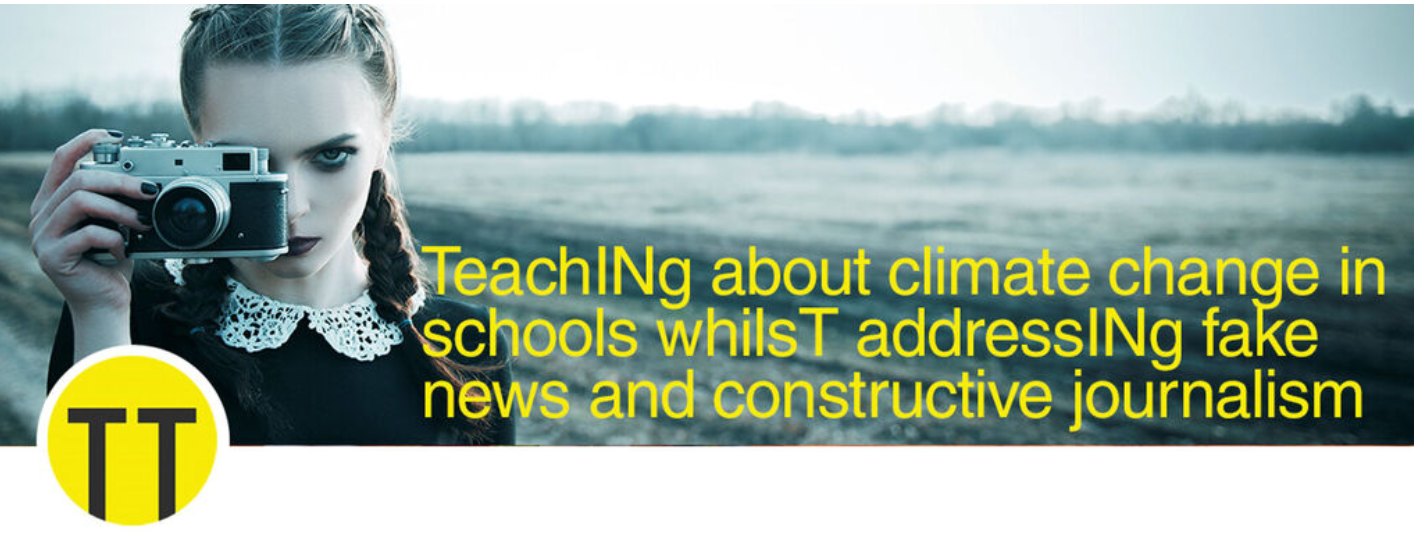
About the project
The project has created an open-access online course of environmental journalism addressed to secondary-school students.
The Tintin project proposes a different approach to climate education: instead of training teachers in acquiring scientific knowledge and transmit it to their students, it prepares teachers to guide and assess students in their own search for information, its analysis and interpretation, adopting a multidisciplinary and competency-based approach based on the principles of critical and constructive journalism.
Why?
– Climate change education is relatively new and starting to be compulsory in many EU countries
– Teachers often have not received the adequate training
– The information is changing constantly and is often subject of misinformation and fake news
– The overload of information can be overwhelming
– The information can be difficult to communicate with a risk of causing apathy or anxiety among children
– Students are asking for it
Objectives
– To support teachers and schools in the education of climate change and sustainability, providing them with the tools and resources.
– To increase awareness about climate change and sustainability through an active, critical and constructive approach, promoting behavioural changes.
– To develop, validate and promote an innovative, creative and cross-curricular on-line course on journalism and climate change, where students become actors in promoting behavioural changes.
– To reinforce and assess key competences such as critical thinking and green skills, collaborative and communicative skills, through an ICT-based learning method.
– To introduce students to journalism, the principles of research, fake news and misconceptions.
What have we done?
- An open-access online course of environmental journalism for secondary schools
– 5 learning units with videos, publications, activities for students and guidelines for teachers and for students.
– The course will address the basics of journalism and climate change, research, analysis and presentation of results
- An e-learning platform
– an open-access platform for the course
– an eportfolio for the follow-up and competency-based assessment of the students’ activities
– the Portabily tool
- A Handbook for Climate Change Education
– An analysis of the perception/thinking/behaviour of young people on the main issues of climate change, misconceptions and fake news
– Practical information for teachers and schools about the implementation of the course, best practices and success stories
– Recommendations for policymakers and educational administrations





TINTIN – TeachINg about climate change in schools whilsT addressINg fake news and constructive journalism
Erasmus+ Strategic Partnership in the Field of Education, Training and Youth
Strategic Partnerships supporting innovation
KA201 – School education
Project reference: 2020-1-ES01-KA201-082367
Project duration: 1/10/2020 – 31/12/2022
Maximum grant: 237.413€


This project has been funded with support from the European Commission. This website reflects the views only of the author, and the Commission cannot be held responsible for any use which may be made of the information contained therein.